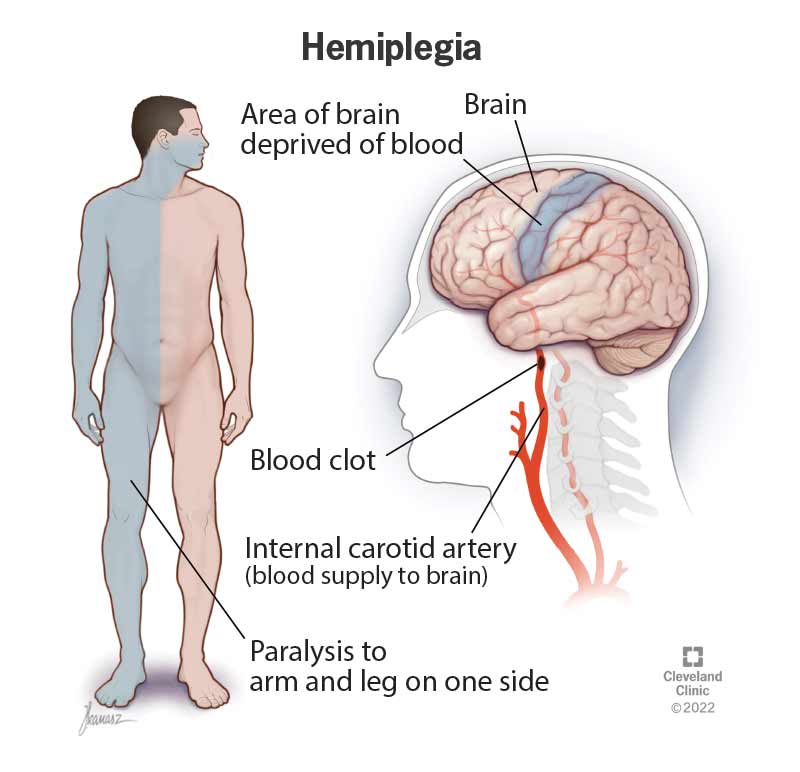
Hemiplegia
A person affected by paralysis cannot move any part of their body which may include all of it just one half of it or just certain parts of it. Knowing what paralysis is now we can't even begin to imagine the hardships that a patient who is paralyzed and their caregivers go through.
Overview
Hemiplegia is the term for a non-progressive paralysis that affects one side of the body. Muscle stiffness has left the patient unable to move their limbs. It could be inherited or learned. Due to a significant loss of muscle power, the patient is unable to perform activities on the affected side.
Causes
Hemiplegia is a common outcome that many stroke patients experience. Brain injury infections by bacteria viruses or fungi and spinal cord damage are a handful of the most commonly studied causes of hemiplegia. Because the prominent nerves in the body are supplied by the brain and spinal cord even minor injuries or damage to these structures can cause hemiplegia.
Symptoms
Depending on the affected area and the underlying cause hemiplegia symptoms can vary. Patients with hemiplegia may exhibit any of the following symptoms:
Weakness of the muscles
Inability to move the affected area
Difficulty walking
Imbalance
Loss of control and spasticity
Brain damage manifests as speech lesions irritability memory loss and behavioral and attitude changes.
Ayurvedic View
Sarvanga vata- it is vata dosha predominant disease, where this aggravated vata enters sira (blood vessels, nerves) and snayu (tendon, ligaments) dries these by vata dosha ruksha (drying quality) and causes sandhi vishleasha (looseness of affected joint), kriya hani (loss of function) etc, this when affects partial half either right side full or left side this is hemiplegia. Ayurveda way of approach is to correct agni (metabolism), bring dosha back to prakruta awastha (balanced state), rehabilitate the affected area by ayurvedic panchakarma treatment and treatment done locally for the head and affected area (nerves), stimulate the nerves lost function.
Ayurvedic Treatments
Snehana Bashpa Swedana Virechanam Vasti Upanaham Nasyam Pizzhichal Shirodhara Thalapodhichil
Naturopathy Treatments
Spinal spray Enema Manipulative therapy Spinal packs Reflexology Acupuncture Moxibustion Diet therapy Cyclic meditation Mind sound resonance technique Pranayama Physiotherapy Electrotherapy Exercise therapy
Hemiplegia
Treatment for
DISCLAIMER: Listed treatment details are only for information purposes. Treatments and duration may vary depending on numerous factors. Treatments for your condition may not be limited to this list.






















